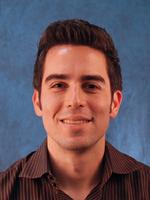Developing Assessments for the Next Generation Science Standards: The Role of Design Process and Measurement Modeling in Validation
| Event Date: | October 26, 2017 |
|---|---|
| Speaker: | Dr. Brian Gane
|
| Speaker Affiliation: | Visiting Research Assistant Professor,
Learning Sciences Research Institute, University of Illinois at Chicago |
| Location: | ARMS B071 |
| Priority: | No |
| School or Program: | Engineering Education |
| College Calendar: | Show |
The Next Generation Science Standards–adopted by 18 states and the District of Columbia–have accelerated this shift. Assessments that allow students to demonstrate their knowledge-in-use are critical because they can (a) signal to teachers and students what proficiency “looks like” and (b) support instruction that integrates science and engineering practices with content knowledge. In this talk I focus on two aspects of validating classroom assessments: design and modeling. I will describe and exemplify a principled assessment design process–evidence-centered design–that was used to develop assessments for middle school life and physical science. I will report on an empirical study in which we used a measurement model to analyze the performance of assessment tasks. Together, these design and modeling efforts support our validity argument for the use of these multi-dimensional assessment tasks.
Biography
Brian Gane is a visiting research assistant professor at the Learning Sciences Research Institute at the University of Illinois at Chicago. His primary research interests center on the research and development of learning environments, including the design of assessments, instruction, and curriculum within those learning environments. Recently, his work has concentrated on the development and validation of assessments for engineering and science disciplines. Dr. Gane continues to be involved in on-going teacher education, especially around assessment with the NGSS. He holds a doctorate in engineering psychology from the Georgia Institute of Technology.

